We are currently going through a very changing professional landscape; it is necessary to update faster and faster and this must involve updating all the strategic departments of the companies.
Increasingly, the motivations and interests of workers are changing and, consequently, the role of Human Resources is fundamental to face this new situation.
The old strategies of these departments are no longer enough, they have had to modernize and adapt.
It is in this sense that the role of Human Resources Business Partner, also called by its acronym, HRBP, appears. This position is increasingly common in the Human Resources departments of large companies and multinationals.
An HRBP can be translated as “Human Resources Business Partner” but, to understand it better, let’s break down its meaning in more detail.
Read More: MBA in Organizational Leadership – A Complete Guide for 2024
What is a Human Resources Business Partner
The figure of Human Resources Business Partner was born from the need to extend and complete the functions and competencies that were part of the classic Human Resources departments, leaving aside the traditional personnel administration functions.
An HRBP is a professional specialized in Human Resources who contributes to the company by working closely with the team of managers, in order to pursue the achievement of corporate objectives, guaranteeing, in turn, the well-being of the people who work within its perimeter.
This is achieved through the definition, development, and execution of Human Resources policies in line with the objectives of the company’s Management, thus providing support, at the HR level, for the business strategy.
The HRBP figure must go further and be more proactive when trying to add value to their area, helping all departments of the company go in the same direction, thus facilitating a common objective. It is essential for an HRBP that the people who are part of the organization contribute to achieving the company’s goals.
Contact with IBAS: +201000498154
What skills should a Human Resources Business Partner have?

What skills should a Human Resources Business Partner have?
As we have seen in the previous section, to perform an HRBP position, it is not enough to act as a typical Human Resources technician, it is necessary to go one step further and provide more added value. Therefore, it is essential to have the following skills to perform this role:
- People orientation:
there is no doubt that a Human Resources professional who wants to develop this role must be someone who has a passion for people and who has a high motivation for dealing with them since this function will be the main one in their daily work.
- Clearly understand the company’s strategic objectives:
as an HRBP, in order to align HR objectives with those of the business, it is important to understand exactly where the company wants to go and this is achieved through a trusting and fluid relationship with the direction of the company. In this way, the action plans carried out will be much more practical and effective.
To achieve this knowledge, it is important to soak up all the valuable information from the different strategic departments of the company. In this way, the more areas you know, the greater your added value will be.
- Emotional Intelligence:
HR Business Partner, as we know, must interact with different departments. Possessing high emotional intelligence is, of course, a key factor for your success. The main objective for these professionals should not be forgotten: to ensure that the people who work in the company are comfortable and motivated, continuously strengthening their engagement, which is why developing a high level of empathy is essential to achieve their goals. You must have the ability to see things from another person’s point of view, to put yourself in their place, and to try to experience and understand what they feel.
- Be an observant person with good analytical skills:
an HRBP must pay close attention to all the details of the operation of their company in order to be able to analyze them in depth to develop their HR policy.
It is important to highlight that, although a professional has a lot of experience in a sector or a company, it does not mean that what he has previously applied is the most appropriate for a new context. It is essential to know how to adapt to the different situations and moments experienced in the company to apply the best processes.
Negotiation and conflict resolution skills – This is one of the most important skills for an HRBP. It is not an easy task to align at all times with the objectives of the company and, in turn, of the people who are part of it. On several occasions, different conflicts will appear between them, having to act as a link and act as an intermediary between both parties.
- Good communication skills:
having good communication skills is essential to convey to workers how they can achieve their objectives and make them understand that these must be aligned with the company’s purpose. An HRBP works to support the team of managers and carrying out clear and effective communication will greatly facilitate these relationships.
- Organizational capacity in their tasks:
an HRBP must be agile when performing their functions since they are, without a doubt, a “multitasking” person. You must be quite versatile and know how to perform several tasks at the same time.
The HRBP is the reference person for the company’s employees in everything that concerns HR and will always try to solve their problems. Therefore, he must learn to organize and prioritize, solving the tasks with the greatest impact on the company first.
To conclude this section, once we have analyzed what the necessary competencies are for an HRBP and thus better understand the definition of the position, it is important to review who an HR Business Partner reports to in order to know what place they would occupy in the organization chart. Normally, an HRBP reports to the corporate director of Human Resources, a figure that is one step below management.
Read More: Total Quality Management: What it is, principles and examples
HR Business Partner responsibilities

Now that we can better understand what an HR Business Partner is, it is important to explain their functions within the company.
As we have seen in the previous section, an HR Business Partner is a person used to “multitasking”, they have to carry out many different functions, but always with the same purpose. Let’s look at it in detail, what is expected of an HR Business Partner?
- Cooperation with the recruiting and Staff management area:
although an HRBP does not have to be in charge of carrying out the management of the selection processes, they must be in contact with this area to validate the profiles that enter the company and for the selection of internal profiles ensuring the best person/position match. You must manage requests for personnel to the selection service and collaborate in prioritizing needs.
Act as a link between the company’s employees and the company:
must be an intermediary between the parties to guarantee the achievement of common objectives following the main business strategy.
- Direction of HR cycles in terms of performance evaluation:
One of the main functions of an HRBP is performance evaluation. This must manage this entire process completely in order to ensure that the defined standards are met and guarantee an objective evaluation by managers.
In these performance evaluations, the skills of all professionals will be measured in detail to detect high potential and new talents, as well as determine the different action plans that must be carried out in each case, in order to guarantee the projects career most suitable for each professional.
- Define and implement Human Resources policies and processes:
an HRBP will not always participate in the design of these processes since, depending on the size of the company, there may be a corporate Human Resources department that creates the main HR policies and the HRBP is in charge of executing them. This does not mean that there is no capacity for modification or adaptation on your part as long as you maintain the main essence.
It is important for the HRBP to ensure that these processes are up to date, thus pushing and supporting employee loyalty in the company, and providing innovation and improvements in these processes whenever it is detected to be necessary.
Contact with IBAS: +201000498154
- Collaboration with managers:
the HRBP has direct contact with the different managers of the company, supporting them in strategic decisions regarding the management of their teams (conflict resolution, career plans, training needs…). You must become a key figure for them and create a relationship of trust to increase the effectiveness of your decisions.
- Mastery and transmission of motivational management practices:
the HRBP must focus on employee motivation, always prioritizing the well-being of all those who work within the company and thus promoting their loyalty to the company.
- Worker attention:
an HRBP is always at the service of the company’s employees, helping them resolve any questions and concerns they may have. He is committed to maintaining focus and attention to the employee as a priority within his responsibilities and managing the transmission of this foundation to the different managers.
On many occasions, you will have to resolve conflicts between some people and/or departments by advising in the best possible way, trying to reduce the risks they may cause.
- Manage the development of “high potentials”:
these high potentials will be identified in the evaluations made to the company’s employees, where not only performance but also potential is measured, that is, where they can go and what they can do. career plans they may have in the medium and long term.
Accompanying these profiles through a tailored program is key to helping them grow and develop professionally within the company.
- Training plans:
in the same way, as with selection processes, an HRBP should not always be in charge of managing training processes but should be in charge of identifying training needs and implementing individual training programs. An adequate training plan is essential when developing a tailored professional career.
When identifying needs, you should rely on managers and transfer what has been identified to the training department (if it is not managed directly) so that they take it into account in their planning.
- Reporting:
being aligned with the main objectives of the company, it will be necessary to report to management and present results through monitoring the different KPIs that have been established. In this link, you can find more information about what a KPI is.
- Labor relations:
in this matter, you must ensure correct compliance with legal regulations and company policy. You must be in continuous contact with this area since you will have to carry out processes that cannot violate certain regulations dictated by the law or by the company.
Read More: Why MBA is important?12 Reasons to Do MBA Degree
Conclusion
As we have seen throughout the article, a Human Resources Business Partner is a good ally in companies to pursue their strategy, thus ensuring the organizational culture.
An HRBP is the right hand of management in HR matters, for which it is responsible for both strategic planning and execution and assurance, its main objective being to guarantee the development of the people who work within its area.
More and more multinationals are implementing this figure in their Human Resources departments in order to move away from the traditional administrative Human Resources, whose main functions were based on payroll management and personnel administration, and move towards the new ones. trends. An HR Business Partner will help achieve the company’s objectives, moving in the same direction, and promoting the consolidation of the people who work in it.
we invite you to approach our team, who will help you learn more details about the entire admission process and other Educational Support that will help you give a boost to your career.


